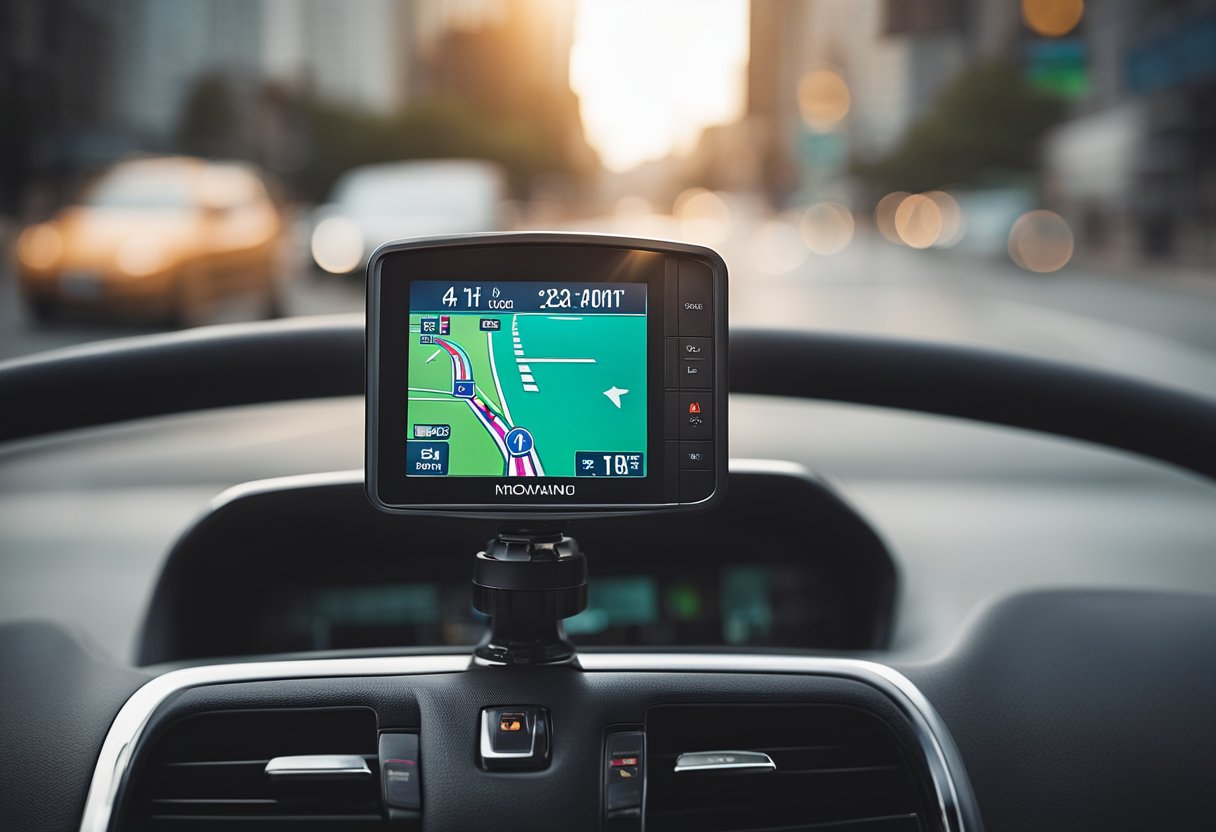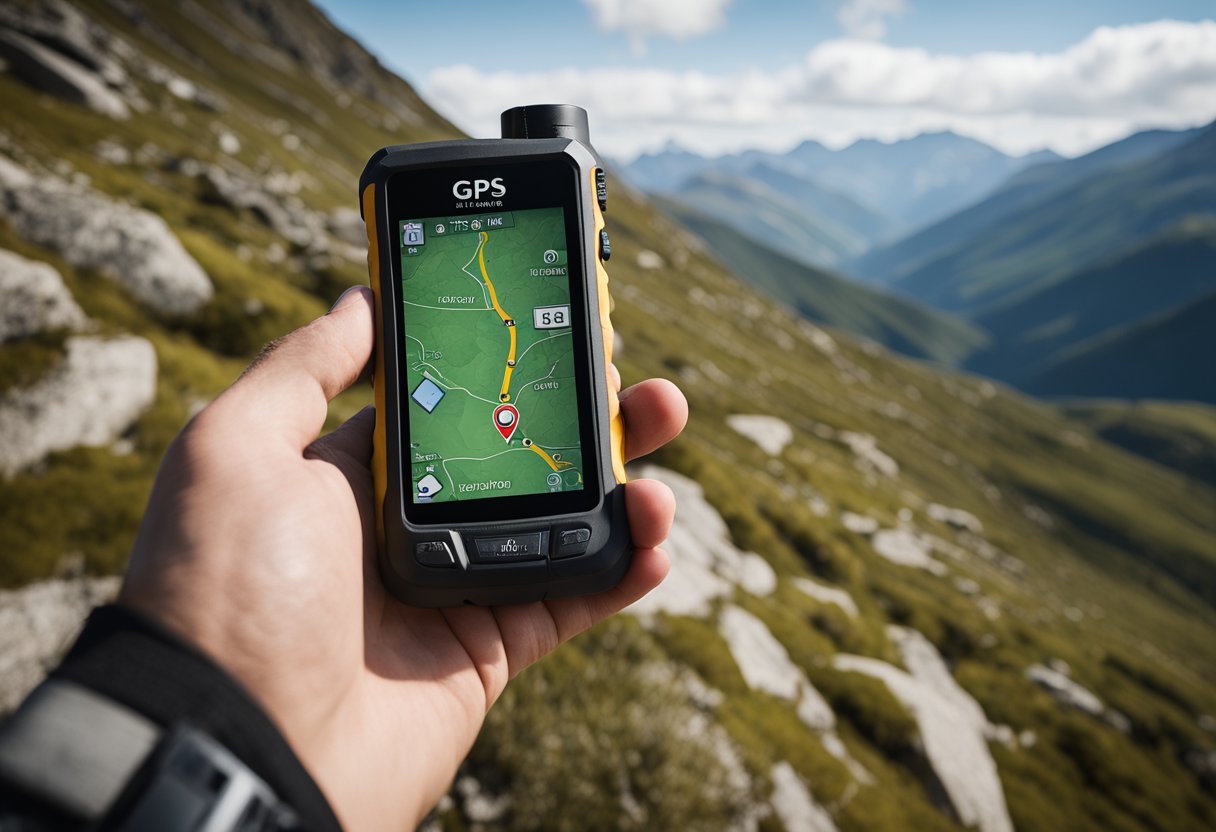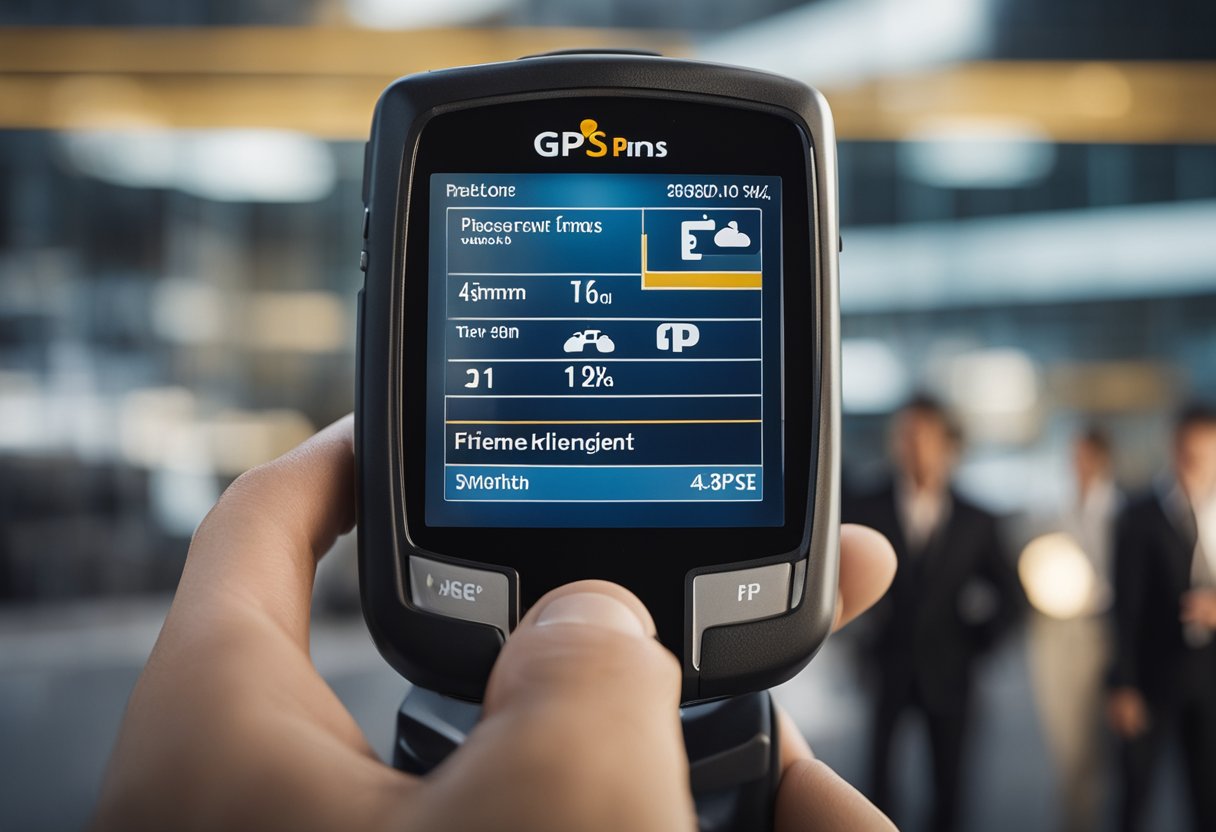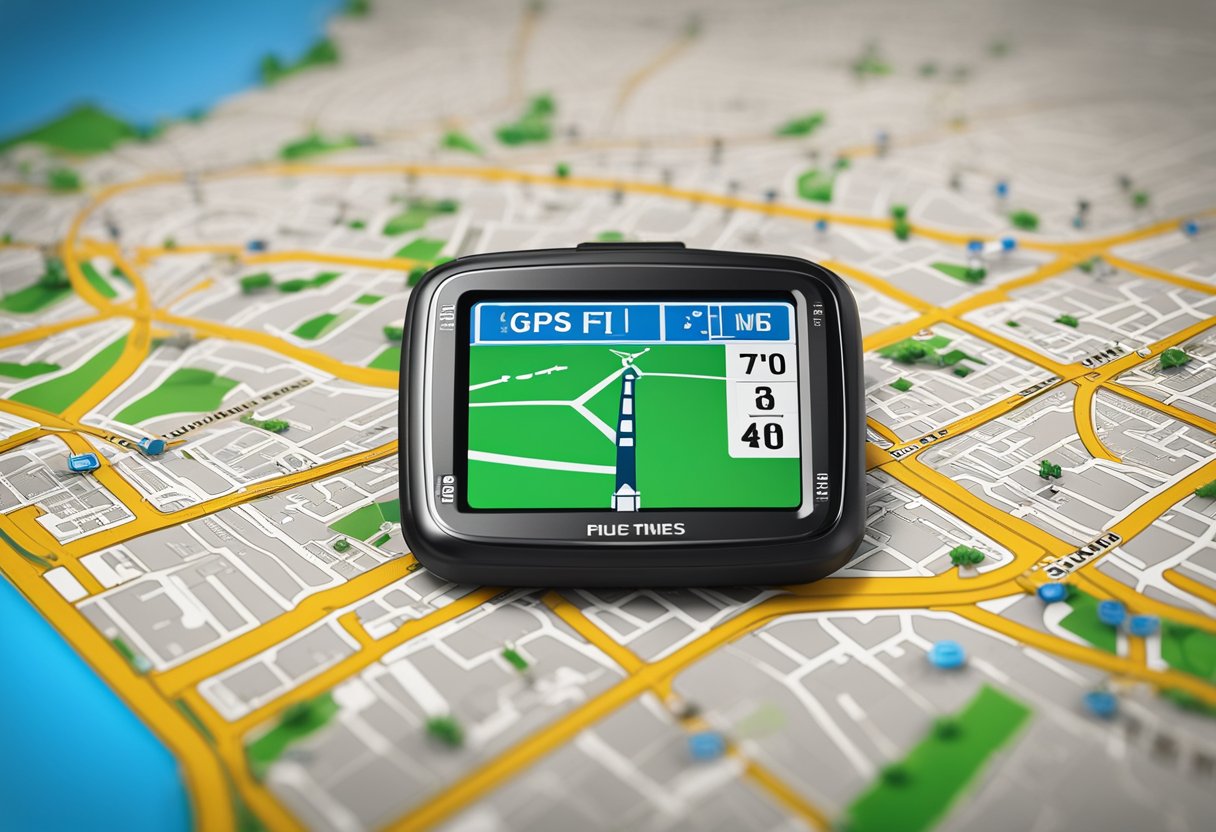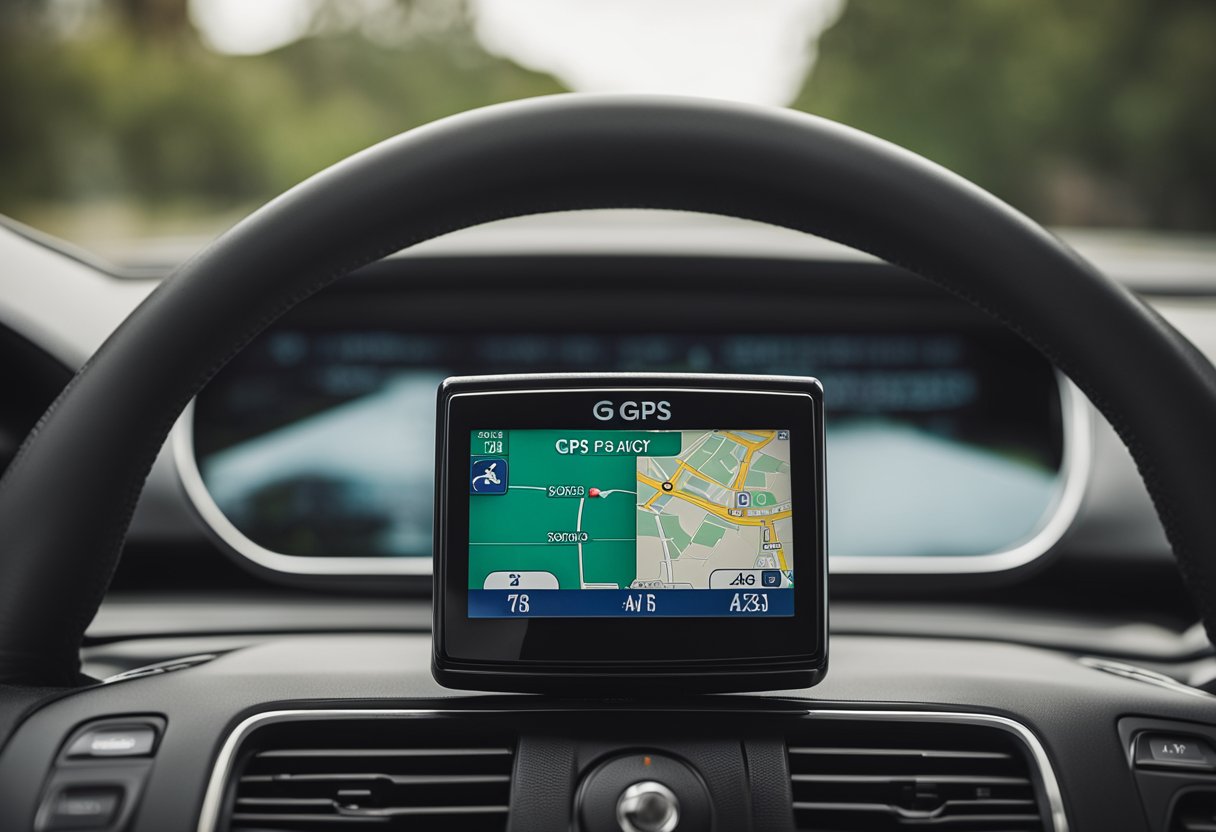GPS or Global Positioning System is a satellite-based navigation system that provides location and time information anywhere on Earth. The system consists of a network of 24 satellites orbiting the Earth, ground control stations, and GPS receivers. GPS has become an essential tool for navigation, surveying, mapping, and tracking.
GPS technology has revolutionized the way people navigate and travel, making it easier and more efficient to get from one place to another. GPS devices are commonly used in cars, boats, and airplanes to provide real-time location information, directions, and traffic updates. GPS tracking devices are also used to monitor the location of people, vehicles, and assets for security and safety purposes.
The benefits of GPS technology extend beyond navigation and tracking. GPS data can be used for a wide range of applications, including scientific research, weather forecasting, and disaster management. GPS has also had a significant impact on business and industry, improving efficiency, reducing costs, and increasing productivity. As GPS technology continues to evolve, new features and applications are being developed to meet the growing demand for location-based services.
Key Takeaways
- GPS technology is a satellite-based navigation system that provides location and time information anywhere on Earth.
- GPS devices are commonly used in cars, boats, and airplanes to provide real-time location information, directions, and traffic updates.
- GPS has revolutionized the way people navigate and travel, and has had a significant impact on business and industry, improving efficiency, reducing costs, and increasing productivity.
Understanding GPS Technology
GPS technology has become an essential part of modern life, used in a wide range of applications from navigation to tracking and monitoring. This section will provide an overview of GPS technology, including its history, how it works, and its components and infrastructure.
History and Development
GPS technology was first developed by the United States Department of Defense in the 1970s. The initial purpose was to provide accurate positioning and navigation for military purposes. However, the technology soon found its way into civilian applications, and today, it is widely used in a variety of industries.
How GPS Works
GPS works by using a network of satellites orbiting the Earth. These satellites transmit signals to GPS receivers on the ground, which use triangulation to determine the receiver’s location. The receiver calculates its position based on the time it takes for the signals to travel from the satellites to the receiver.
GPS Components and Infrastructure
The GPS system consists of three components: the space segment, the control segment, and the user segment. The space segment is made up of a constellation of satellites orbiting the Earth. The control segment is responsible for monitoring and controlling the satellites, while the user segment consists of GPS receivers that receive and process the satellite signals.
The GPS infrastructure is constantly evolving, with ongoing efforts to modernize the system and improve its accuracy and reliability. One of the most significant changes in recent years has been the removal of selective availability, which was a feature that intentionally degraded the accuracy of GPS signals for civilian users.
In summary, GPS technology has become an essential tool for navigation, tracking, and monitoring in a wide range of industries. Its components and infrastructure are constantly evolving, with ongoing efforts to improve its accuracy and reliability.
Types of GPS Devices
GPS devices come in different types, each designed for specific purposes. Here are some of the most common types of GPS devices:
Handheld GPS
Handheld GPS devices are portable and easy to carry around. They are ideal for outdoor activities such as hiking, camping, and hunting. They are also useful for surveying and mapping. Handheld GPS devices are rugged and durable, with long battery life. They come with various features such as weather updates, compass, and altimeter.
In-Vehicle Systems
In-vehicle GPS systems are designed for use in automobiles, trucks, and other vehicles. They provide turn-by-turn directions, real-time traffic updates, and other features such as voice commands and hands-free calling. In-vehicle GPS systems are usually installed in the dashboard or on the windshield.
Smartphone GPS Applications
Smartphone GPS applications are software programs that turn a smartphone into a GPS device. They are convenient and easy to use, as most people already carry a smartphone with them. Smartphone GPS applications provide turn-by-turn directions, real-time traffic updates, and other features such as points of interest and voice commands.
Specialized GPS Equipment
Specialized GPS equipment is designed for specific purposes such as surveying, farming, and heavy equipment. For example, tractors and other heavy equipment can be equipped with GPS devices that provide precise location information, which can be used for mapping, monitoring, and other purposes. Surveyors use specialized GPS equipment to create accurate maps and measure distances.
Overall, GPS devices are versatile and useful tools that can be used in a variety of applications. Depending on the type of device, GPS technology can provide precise location information, turn-by-turn directions, real-time traffic updates, and other useful features.
Applications of GPS
GPS technology has revolutionized the way we navigate and manage our lives. From finding the fastest route to our destination to tracking assets, GPS has become an integral part of our daily lives. In this section, we will explore some of the most significant applications of GPS.
Navigation and Mapping
One of the most common applications of GPS is navigation and mapping. GPS technology has made navigation and route planning easier than ever before. With the help of GPS, people can determine their current position and plan the best route to their destination. GPS is used in various navigation devices such as car GPS, handheld GPS, and smartphone GPS applications. GPS technology has also enabled the creation of detailed maps, which are used in various industries such as transportation, logistics, and urban planning.
Military and Defense
GPS technology has been used by the military for many years. The Department of Defense developed GPS in the 1970s primarily for military use. GPS technology has enabled the military to track and guide missiles, aircraft, and ground vehicles. GPS has also been used in military operations to locate and rescue personnel in distress.
Agriculture and Land Management
GPS technology has revolutionized agriculture and land management. GPS technology is used in precision agriculture to optimize crop yields and reduce waste. GPS technology is used to track and guide farming equipment, such as tractors and harvesters, to ensure that crops are planted and harvested efficiently. GPS technology is also used in land management to map and monitor land use, such as forest management and conservation.
Urban Planning and Surveying
GPS technology is used in urban planning and surveying to map and monitor urban areas. GPS technology is used to create detailed maps of urban areas, which are used in various industries such as transportation, construction, and logistics. GPS technology is also used in surveying to map and measure land and property boundaries accurately.
In conclusion, GPS technology has become an integral part of our daily lives and has a wide range of applications in various industries. From navigation and mapping to military and defense, agriculture, and land management, and urban planning and surveying, GPS technology has changed the way we navigate and manage our world.
GPS in Business and Industry
GPS technology has revolutionized the way businesses operate and manage their assets. From fleet management to asset tracking, GPS devices have become an essential tool for businesses looking to improve their operational efficiency and productivity.
Fleet Management and Logistics
One of the most significant benefits of GPS technology in business is its ability to streamline fleet management and logistics. With real-time location tracking, businesses can monitor their fleet vehicles and optimize their routes to reduce fuel consumption and increase efficiency. GPS devices can also provide valuable data on driver behavior, helping businesses identify areas for improvement and reduce the risk of accidents.
Asset Tracking and Management
GPS technology is also widely used for asset tracking and management. By attaching GPS devices to valuable assets such as equipment and vehicles, businesses can monitor their location and ensure they are being used efficiently. This can help reduce the risk of theft and loss and improve asset utilization rates.
Operational Efficiency and Maintenance
GPS devices can also help businesses improve their operational efficiency and maintenance. By tracking the location and status of equipment and vehicles, businesses can schedule maintenance and repairs more efficiently, reducing downtime and increasing productivity. GPS devices can also provide valuable data on equipment usage, helping businesses identify areas for improvement and optimize their operations.
In summary, GPS technology has become an essential tool for businesses looking to improve their operational efficiency and productivity. From fleet management to asset tracking and maintenance, GPS devices offer a wide range of benefits for businesses of all sizes.
Impact of GPS on Society
GPS or Global Positioning System has revolutionized the way we navigate and communicate. The technology has brought significant benefits to society, from improving safety and emergency services to environmental monitoring and consumer services. This section will discuss the impact of GPS on society, with a focus on safety, environmental monitoring, and consumer services and lifestyle.
Safety and Emergency Services
GPS has had a significant impact on safety and emergency services. Emergency responders can use GPS to locate people in distress, track their movements, and provide assistance. GPS-enabled devices can also help people navigate through unfamiliar areas, reducing the risk of getting lost or stranded. In addition, GPS can provide real-time data on traffic conditions, helping emergency responders to plan their routes and respond more quickly to emergencies.
Environmental Monitoring
GPS technology has also been used to monitor the environment. GPS-enabled devices can track changes in weather patterns, air quality, and other environmental factors. This information can be used to predict natural disasters, such as hurricanes, tornadoes, and floods, and to develop strategies to mitigate their impact. GPS can also help to monitor the effects of climate change, such as rising sea levels and melting glaciers.
Consumer Services and Lifestyle
GPS has transformed the way we live our lives. Navigation apps, such as Google Maps and Waze, have made it easier for people to navigate through unfamiliar areas, find the best routes, and avoid traffic congestion. GPS-enabled devices have also made it easier to track fitness goals, monitor health, and stay connected with loved ones. In addition, GPS has enabled the development of new products and services, such as ride-sharing apps, smart home devices, and location-based advertising.
In conclusion, GPS has had a significant impact on society, improving safety, environmental monitoring, and consumer services and lifestyle. The technology has revolutionized the way we navigate and communicate, and it will continue to shape our lives in the future.
GPS Data Usage and Analysis
GPS data is used for various purposes such as tracking, real-time updates, alerts, geospatial data analysis, telematics, and reporting. In this section, we will discuss some of the ways GPS data is used for analysis.
Real-Time Tracking and Updates
GPS technology enables real-time tracking and updates of vehicles, assets, and personnel. Real-time tracking allows businesses to monitor their assets and personnel, which can help improve efficiency, productivity, and safety. For example, fleet managers can use GPS tracking to monitor the location and status of their vehicles, which can help them optimize routes and reduce fuel consumption. Real-time tracking can also help businesses respond quickly to emergencies and unexpected events.
Geospatial Data Analysis
GPS data can be used for geospatial data analysis, which involves analyzing and visualizing geographic data to gain insights and make informed decisions. Geospatial data analysis can help businesses identify trends, patterns, and relationships in their data. For example, businesses can use geospatial data analysis to identify areas with high demand for their products or services, which can help them optimize their marketing and sales strategies. Geospatial data analysis can also help businesses identify areas with high risk or potential for accidents, which can help them develop safety measures and protocols.
Telematics and Reporting
GPS data is also used for telematics and reporting, which involves collecting and analyzing data from vehicles and assets to improve performance and efficiency. Telematics can help businesses monitor and optimize the performance of their vehicles and assets, which can help reduce maintenance costs and downtime. Reporting can help businesses track and analyze key performance indicators (KPIs), which can help them identify areas for improvement and make data-driven decisions.
In summary, GPS data is a valuable resource for businesses looking to improve their operations and make informed decisions. Real-time tracking and updates, geospatial data analysis, and telematics and reporting are just a few of the ways GPS data can be used for analysis.
Economic and Efficiency Benefits
GPS technology has brought about significant economic and efficiency benefits in various sectors. The following subsections highlight some of the benefits of GPS devices.
Reducing Operational Costs
One of the main benefits of GPS technology is its ability to reduce operational costs in various industries. For example, GPS devices can help fleet managers optimize routes, which reduces fuel costs and vehicle wear and tear. Additionally, GPS tracking can help companies identify and eliminate inefficient practices, reducing costs associated with wasted time and resources.
Enhancing Productivity
GPS technology can also enhance productivity by providing real-time location data that enables companies to monitor their assets and employees. This allows for improved scheduling, better utilization of resources, and increased efficiency. For example, construction companies can use GPS devices to track equipment and manage projects more effectively.
Insurance and Liability Management
GPS technology can also help companies manage insurance and liability risks. For example, GPS tracking can provide evidence in the event of an accident, helping companies avoid liability claims. Additionally, insurance companies may offer lower premiums to companies that use GPS devices to monitor their assets and employees.
Overall, the economic and efficiency benefits of GPS technology are significant and continue to grow as the technology advances. By reducing operational costs, enhancing productivity, and managing insurance and liability risks, GPS devices are becoming an essential tool for businesses looking to improve their bottom line.
GPS Challenges and Considerations
GPS technology has certainly come a long way since its inception, but there are still a few challenges and considerations that users need to be aware of. Some of the most significant issues include accuracy and reliability, privacy and security concerns, and licensing and usage restrictions.
Accuracy and Reliability Issues
One of the most common challenges associated with GPS technology is accuracy and reliability. While GPS devices are generally very accurate, there are a few factors that can impact their performance. For example, GPS signals can be blocked or distorted by tall buildings, trees, and other obstructions. Additionally, GPS devices may struggle to provide accurate readings in areas with poor satellite coverage or during severe weather conditions.
Privacy and Security Concerns
Another issue to consider when using GPS technology is privacy and security. GPS devices can be used to track the location of individuals or vehicles, which can be a concern for those who value their privacy. Additionally, GPS devices can be hacked or compromised, which can lead to sensitive information being leaked or stolen. To mitigate these risks, it is important to use GPS devices from reputable manufacturers and to take steps to secure the devices and data.
Licensing and Usage Restrictions
Finally, it is important to be aware of licensing and usage restrictions when using GPS technology. In some cases, GPS devices may be subject to licensing requirements or usage restrictions, which can limit their functionality or increase their cost. Additionally, some countries may have restrictions on the use of GPS devices, particularly in sensitive or military areas.
Overall, while GPS technology offers many benefits, it is important to be aware of the challenges and considerations associated with its use. By taking steps to mitigate these risks and using GPS devices responsibly, users can enjoy the many benefits of this powerful technology.
GPS in Workforce Management
GPS technology has revolutionized the way businesses manage their mobile workforce. With GPS devices, employers can track their employees’ location, movements, and activities in real-time, providing greater visibility and control over their operations. In this section, we will explore the benefits of GPS in workforce management, including employee monitoring and compliance, improving timeliness and scheduling, and billing and time logging.
Employee Monitoring and Compliance
GPS tracking devices allow employers to monitor their employees’ whereabouts during working hours, ensuring they are adhering to company policies and guidelines. This feature helps to increase employee accountability, as they are aware that their movements are being tracked. With GPS tracking, employers can also ensure that their employees are working efficiently and productively, and not wasting time on non-work-related activities.
Improving Timeliness and Scheduling
GPS tracking devices can help businesses improve timeliness and scheduling by providing real-time data on the location of their employees. This feature enables employers to make informed decisions about which employee is closest to a particular job site, reducing travel time and increasing productivity. GPS tracking also helps businesses to manage their schedules better, ensuring that employees arrive on time for their appointments and that there are no delays in the delivery of goods and services.
Billing and Time Logging
GPS tracking devices can be used to track the time that employees spend on a job, allowing for accurate billing and time logging. This feature helps businesses to ensure that they are billing their clients correctly and that their employees are being paid fairly for the work they have done. GPS tracking also helps businesses to manage their payroll more efficiently, reducing the time and effort required to manually track and record employee hours.
In conclusion, GPS technology has become an essential tool for businesses that rely on a mobile workforce. With its ability to monitor employee movements, improve timeliness and scheduling, and provide accurate billing and time logging, GPS tracking devices can help businesses to increase productivity, reduce costs, and improve customer satisfaction.
Advanced GPS Features
GPS technology has come a long way since its inception. Today, GPS devices have advanced features that make them more accurate and efficient. Below are some of the advanced GPS features that are available today.
Augmented GPS Capabilities
GPS devices can now provide augmented capabilities such as a digital compass. This feature helps in navigation as it gives the user a sense of direction. The compass is especially useful in areas where GPS signals are weak or unavailable. It helps the user to stay on course and reach their destination without getting lost.
Furthermore, modern GPS devices now offer real-time updates on traffic, weather, and other relevant information. This information is crucial in planning routes and avoiding delays. With this feature, users can avoid congested roads and save time on their journey.
Integration with Other Technologies
GPS technology has been integrated with other technologies such as smartphones and the internet. This integration allows for more efficient use of GPS devices. For example, users can now use their smartphones as GPS devices. This feature eliminates the need for a separate GPS device, making it more convenient for users.
Moreover, GPS technology has been integrated with modern vehicles. Modern cars now come with built-in GPS devices that provide real-time traffic updates and other relevant information. This integration has made driving more convenient and efficient.
Future Prospects of GPS
GPS technology is constantly evolving, and there are many prospects for its future. The modernization of GPS technology is ongoing, with the aim of making it more accurate and efficient. The modernization process involves upgrading the GPS satellite network, improving GPS signals, and increasing the number of satellites.
Furthermore, the integration of GPS technology with other technologies is set to continue. This integration will make GPS devices more efficient and convenient for users. The future prospects of GPS technology are promising, and it is set to revolutionize the way we navigate and travel.
In conclusion, advanced GPS features such as augmented capabilities and integration with other technologies have made GPS devices more efficient and convenient for users. The future prospects of GPS technology are promising, and it is set to revolutionize the way we navigate and travel.
Frequently Asked Questions
What are the primary benefits of using a GPS device for navigation?
GPS devices offer a range of benefits for navigation. They provide accurate location tracking, which allows users to plan their routes effectively and reach their destinations on time. Additionally, GPS technology can help drivers avoid traffic congestion, which can save time and reduce stress. GPS devices also provide real-time information about weather conditions, road closures, and other hazards, which can help drivers make informed decisions about their routes.
How does a GPS tracker enhance the security of a vehicle?
GPS tracking devices can be used to monitor the location of vehicles, which can help prevent theft and improve recovery efforts if a vehicle is stolen. GPS trackers can also be used to monitor driver behavior, which can help improve safety and reduce accidents. In addition, GPS tracking can help fleet managers optimize their operations by providing real-time information about vehicle location and performance.
What are some potential drawbacks of using GPS tracking in sports?
While GPS tracking can be useful in sports, there are some potential drawbacks to consider. GPS devices can be bulky and uncomfortable to wear, which can be a distraction for athletes. Additionally, GPS tracking can be expensive, which may make it difficult for some teams or athletes to afford. Finally, GPS devices may not always provide accurate data, especially in areas with poor satellite coverage.
In what ways has GPS technology improved maritime navigation despite its limitations?
GPS technology has revolutionized maritime navigation by providing accurate location tracking, which has improved safety and efficiency. GPS devices can help ships navigate through difficult waters, avoid hazards, and stay on course. Additionally, GPS technology has made it easier for ships to communicate with each other and with shore-based facilities, which has improved coordination and safety.
What are the common limitations encountered with GPS surveying techniques?
GPS surveying techniques can be affected by a range of factors, including atmospheric conditions, satellite geometry, and equipment errors. In addition, GPS signals can be obstructed by buildings, trees, and other obstacles, which can reduce accuracy. Finally, surveying with GPS technology can be time-consuming and expensive, which may make it difficult for some organizations to use.
How has the implementation of GPS technology impacted various industries?
GPS technology has had a significant impact on a range of industries, including transportation, logistics, agriculture, and construction. GPS devices have made it easier for companies to track their assets, optimize their operations, and improve safety. Additionally, GPS technology has enabled new business models, such as ride-sharing and delivery services, which have transformed the way that people travel and receive goods.

